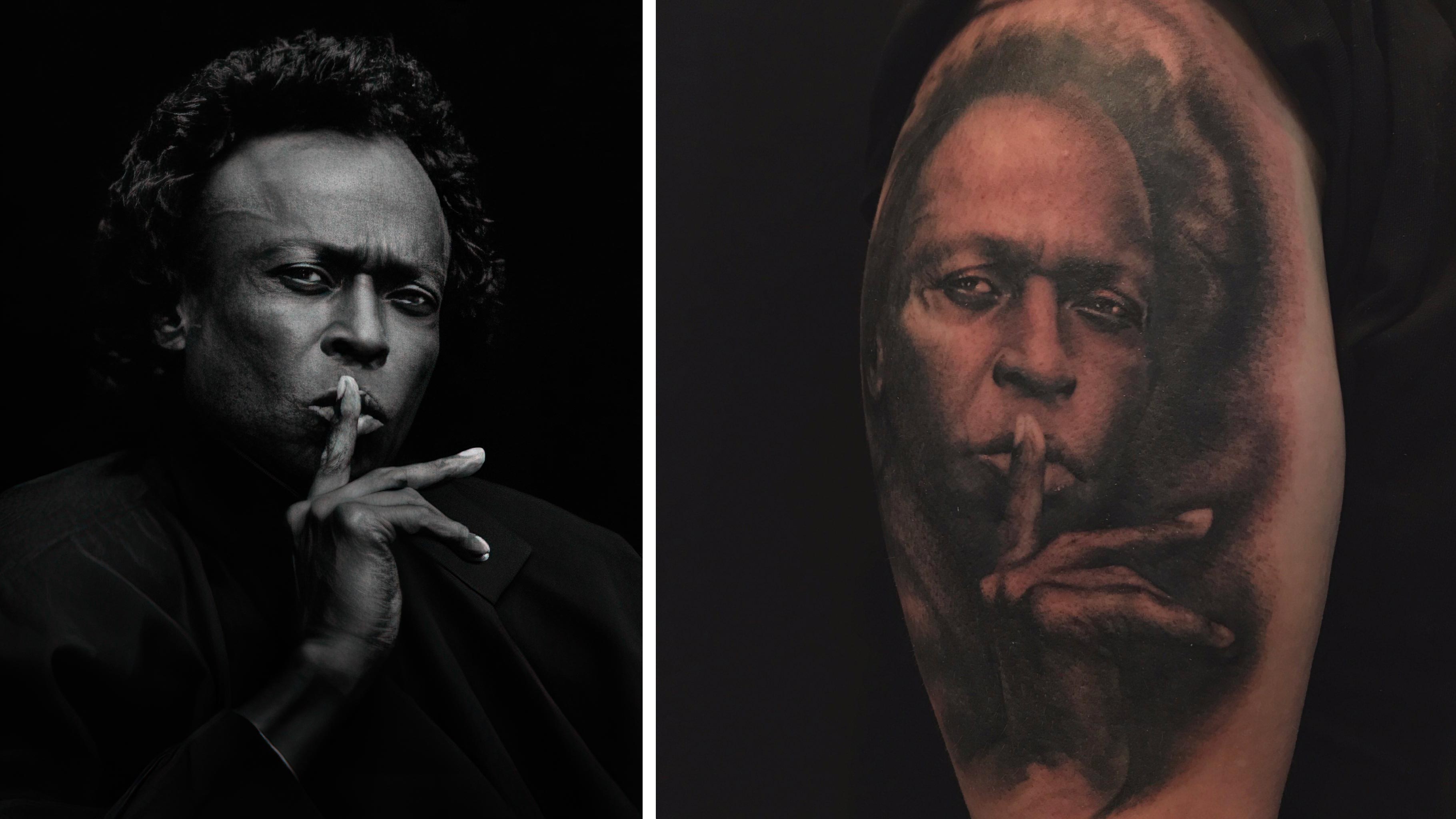Kat Von D is being sued for tattooing a photographer's image without permission
Tattoo artist Kat Von D is being sued by a photographer for using his image of Miles Davis for a tattoo

Celebrity tattoo artist Kat Von D is being sued by photographer Jeff Sedlik for using his photograph of Miles Davis for a tattoo on one of her clients. The photographer is accusing Von D of copyright infringement, as she used his image without permission.
The iconic image of Miles Davis was taken by Jeff Sedlik in 1989 for a cover story in JAZZIZ magazine. This image then went on to be published in multiple magazines around the world, including Life magazine. In March 2017, Kat Von D then used this photo to create a tattoo for a client.
• Read more: Best lens for portraits
Kat Von D owns a tattoo business called High Voltage Tattoo, which is based in Hollywood and was featured in a TLC reality series called LA Ink. It's been reported that Kat Von D didn't have a license to use or reproduce the image from Sedlik and didn't even attempt to request permission from the photographer.
On 7 February 2021, Sedlik filed a complaint in a federal court based in California. Sedlik is reportedly demanding that Von D removes any images depicting his photograph from her social media. He's also asking for damages up to $150,000, plus legal fees.
Sedlik provided an official statement to Billboard, “Ms. Von Drachenberg not only used Mr. Sedlik’s photograph without permission or license, but took credit for Mr. Sedlik’s creation as her own, distributing photographs of her unlawful derivate work to millions of social media followers, and supplying those photographs to publishers for inclusion of promotional editorials about Ms. Von Drachenberg and her various commercial ventures.”
An article on Copyright Lately discusses some of the potential points that could appear in the case. "The most likely copyright defense for Von D to assert is fair use, on the theory that her tattoo transformed the original image in some way by altering it with a new meaning or message."
Get the Digital Camera World Newsletter
The best camera deals, reviews, product advice, and unmissable photography news, direct to your inbox!
The debate of fair use will undoubtedly be a major part of this case. Producing a tattoo isn't a simple as pushing a button to print an image. Certain talent and skills are required. Having said that, the courts could find that the tattoo doesn't change enough of the image for it to warrant fair use.
Either way, the outcome of this case could have a lasting impact on future copyright cases and fair use in the future.
Read more:
The best camera for portraits
The best photography lighting kits
Portrait photography tips: how to practice portrait lighting without a model
Usman is a commercial and architectural photographer based in West Yorkshire, who has been working professionally for over seven years. He has also spent over four years as a writer for the biggest photography sites in the world, including Staff Writer for Digital Camera World, senior staff writer for FStoppers, and tech writer for Petapixel.
With a particular interest in technology developments, high-resolution imaging and the high-end cameras, Usman has been on the cutting edge of camera news as well as writing features about medium format systems and global shutters, and has reviewed some of the latest Leica cameras as well as a tripod that’s even taller than Andre the Giant!

